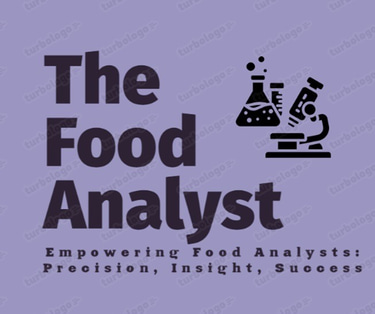"Empowering food analysts and laboratory professionals with expert insights, ISO 17025 resources, regulatory updates, industry testing requirements, training, and career opportunities for excellence in food testing."
ISO/IEC 17025:2017 Clauses 7.1.4 and 7.1.8
Clauses 7.1.4 to 7.1.8 of ISO/IEC 17025:2017 ensure that laboratories clarify and agree on customer requirements before starting work, communicate deviations, re-review amended contracts, cooperate with customers during testing, and maintain proper records of all reviews and communications—ensuring transparency, traceability, and reliable, compliant testing practices.
3 min read
Clause 7.1.4 – Resolving Differences Before Work Begins
Text of the Clause:
Any differences between the request or tender and the contract shall be resolved before laboratory activities commence. Each contract shall be acceptable both to the laboratory and the customer. Deviations requested by the customer shall not impact the integrity of the laboratory or the validity of the results.
Explanation:
Before starting any testing, the laboratory must ensure that there is a mutual understanding and agreement between what the customer has requested and what the lab can deliver. If there is any discrepancy between the tender/request and the contract, it must be resolved. Importantly, the laboratory should not accept any customer request that could compromise the quality or reliability of the results.
Example
A biscuit manufacturer approaches the lab to test for total dietary fiber using a rapid method due to time constraints. However, the lab’s validated method takes 48 hours. The customer asks for a report soon In this case, the lab must explain that using an unvalidated or faster method could compromise the result’s validity. Therefore, the lab should not accept the deviation unless it can be validated and proven to produce reliable results. This difference must be resolved before starting testing.
Clause 7.1.5 – Informing About Deviations
Text of the Clause:
The customer shall be informed of any deviation from the contract.
Explanation:
If something changes during the testing process—such as unexpected delays, method changes, or issues with samples—the laboratory must inform the customer immediately. Transparency helps maintain trust and gives the customer a chance to make decisions or provide further instructions.
Example
A spice exporter sends turmeric samples for aflatoxin testing. During analysis, the lab discovers that the sample quantity is insufficient to run the test in duplicate, as required. Instead of proceeding, the lab must inform the customer about the issue and request more sample or get permission to proceed with the available quantity.
Clause 7.1.6 – Re-reviewing Amended Contracts
Text of the Clause:
If a contract is amended after work has commenced, the contract review shall be repeated and any amendments shall be communicated to all affected personnel.
Explanation:
If the customer changes their requirement after testing has started, the lab must review the new instructions as thoroughly as the original contract. Also, the lab must ensure that the revised requirements are clearly communicated to all staff involved in the work.
Example
A frozen food manufacturer initially requests microbiological testing for E. coli and Salmonella. Midway, they request additional testing for Listeria monocytogenes. The lab must:
Re-review the new requirement.
Quantity of the sample
Assess if it has the capacity and method for Listeria testing.
Inform the analysts involved.
Update documentation and timelines accordingly.
Clause 7.1.7 – Cooperating With Customers
Text of the Clause:
The laboratory shall cooperate with customers or their representatives in clarifying the customer's request and in monitoring the laboratory’s performance in relation to the work performed.
NOTE:
Such cooperation can include:
Providing reasonable access to relevant areas of the laboratory to witness customer-specific laboratory activities.
Preparation, packaging, and dispatch of items needed by the customer for verification purposes.
Explanation:
The lab must support the customer in:
Understanding technical aspects of their request.
Allowing them to observe the testing process (as long as it doesn’t disrupt operations).
Sending them materials for verification, such as split samples, control charts, or calibration certificates.
Example –
A dairy company hires the lab to test their milk powder for melamine contamination. As part of their supplier audit, they request to visit the lab and observe the testing process. The lab should allow them access to the relevant area and demonstrate the testing procedure (e.g., LC-MS/MS). Also, if the company requests a portion of the tested sample for internal comparison, the lab should pack and dispatch it according to protocols.
Clause 7.1.8 – Keeping Records
Text of the Clause:
Records of reviews, including any significant changes, shall be retained. Records shall also be retained of pertinent discussions with a customer relating to the customer's requirements or the results of the laboratory activities.
Explanation:
The lab must maintain documentation for all contract reviews, especially if changes are made. Additionally, any key communication—emails, meeting notes, phone call summaries—that relates to customer instructions or test results should be recorded and stored.
Example –
During the contract review for a bakery chain, the customer specifies the need for gluten detection below 5 ppm. Later, they ask for a change in the method from ELISA to LC-MS for higher sensitivity. The lab must:
Record the original review.
Document the change request and approval.
Save all email communication or notes from meetings.
Ensure these records are easily retrievable during audits or customer queries.
© 2025. All rights reserved. All content on this website is the intellectual property of The Food Analyst. Unauthorized use or reproduction is prohibited.
Contact Us
The Food Analyst Team
We are available in multiple locations:
Bangalore | Delhi | Mumbai
Email for editorial: contact@foodanalyst.in
For advertisement: inquiryfoodanalyst@gmail.com
